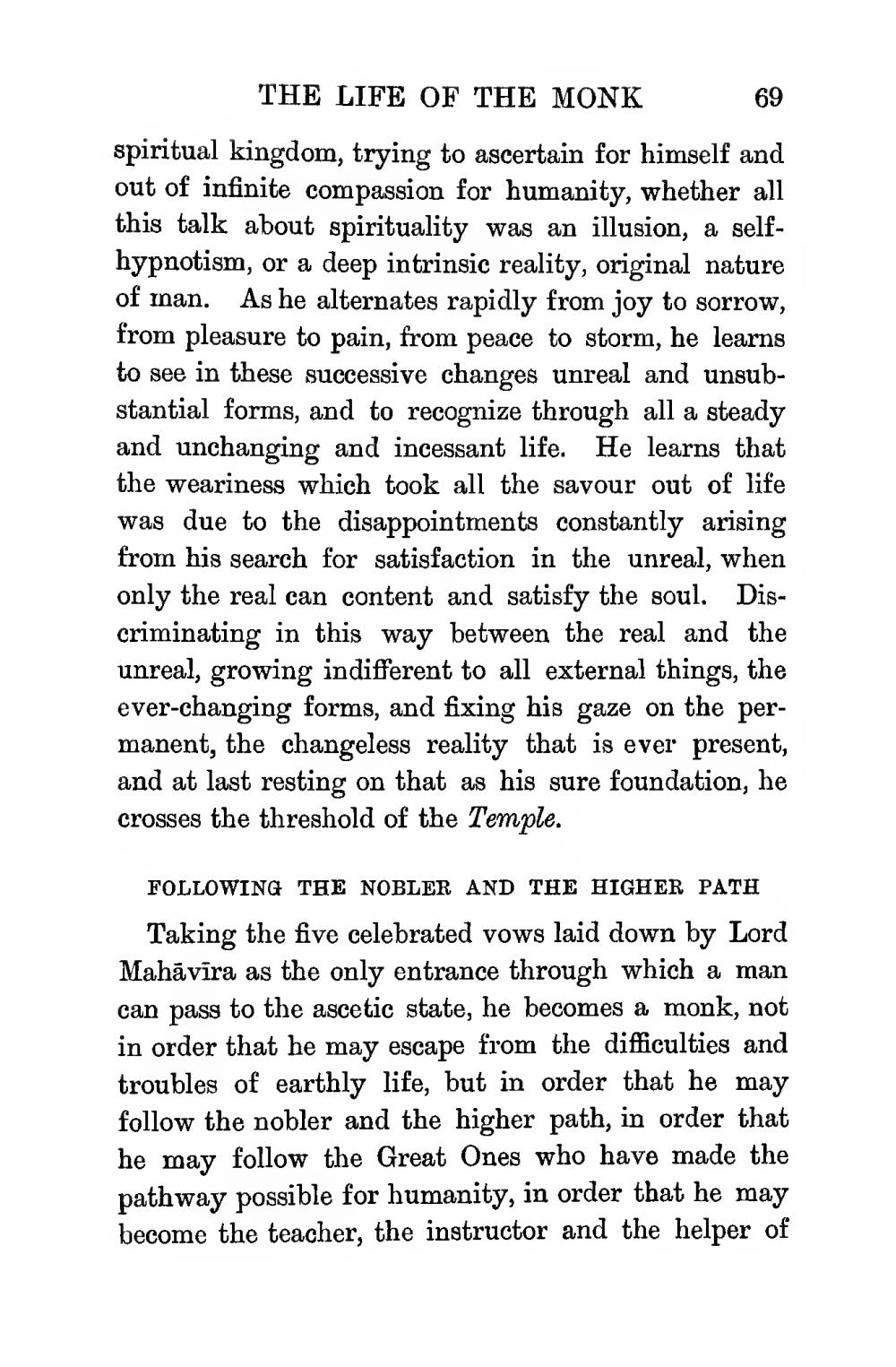________________
THE LIFE OF THE MONK 69 spiritual kingdom, trying to ascertain for himself and out of infinite compassion for humanity, whether all this talk about spirituality was an illusion, a selfhypnotism, or a deep intrinsic reality, original nature of man. As he alternates rapidly from joy to sorrow, from pleasure to pain, from peace to storm, he learns to see in these successive changes unreal and unsubstantial forms, and to recognize through all a steady and unchanging and incessant life. He learns that the weariness which took all the savour out of life was due to the disappointments constantly arising from his search for satisfaction in the unreal, when only the real can content and satisfy the soul. Discriminating in this way between the real and the unreal, growing indifferent to all external things, the ever-changing forms, and fixing his gaze on the permanent, the changeless reality that is ever present, and at last resting on that as his sure foundation, he crosses the threshold of the Temple.
FOLLOWING THE NOBLER AND THE HIGHER PATH
Taking the five celebrated vows laid down by Lord Mahāvīra as the only entrance through which a man can pass to the ascetic state, he becomes a monk, not in order that he may escape from the difficulties and troubles of earthly life, but in order that he may follow the nobler and the higher path, in order that he may follow the Great Ones who have made the pathway possible for humanity, in order that he may become the teacher, the instructor and the helper of




